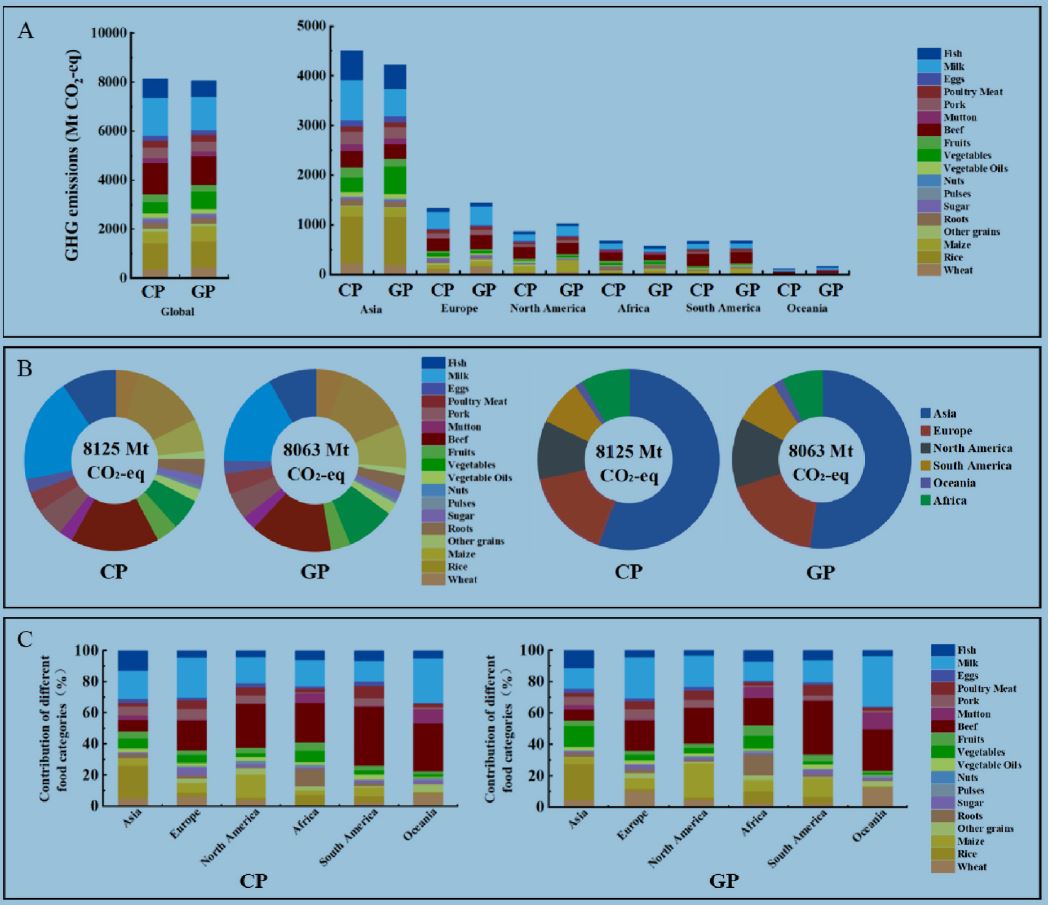November 10, 2023 | Journal of Cleaner Production |
Introduction: Food production is a major contributor to greenhouse gas (GHG) emissions, yet understanding the carbon footprint of different foods across continents is lacking. To fill this gap, a Chinese research team led by Southwest University analyzed over 5,000 carbon footprint values from 524 studies on plant-based and animal-based food production globally.
Key findings: Plant-based foods have a much lower carbon footprint than animal-based foods, with Asia and Europe showing higher emissions for plant-based foods. Conversely, Africa has the lowest carbon footprint for plant-based foods due to minimal agricultural input. Animal-based foods in Africa and Asia have higher emissions compared to other continents, while North America and Oceania have the lowest. Globally, food production contributes 8,125 Mt CO2-eq annually, with grains, meat, and milk being major contributors. Asia is the largest emitter, followed by Europe and North America, while Africa, South America, and Oceania together account for a smaller portion.
Fig. | Global and continuental GHG emissions from food production (A), contribution of different food groups and continnets to global GHG emissions (B), and the contribution of diffeent food groups to GHG emissions from different continents ©. CP refers to calculations based on continent-specific food carbon footprint parameters, while GP refers to caculations based on global-scale carbon footprint parameters.





